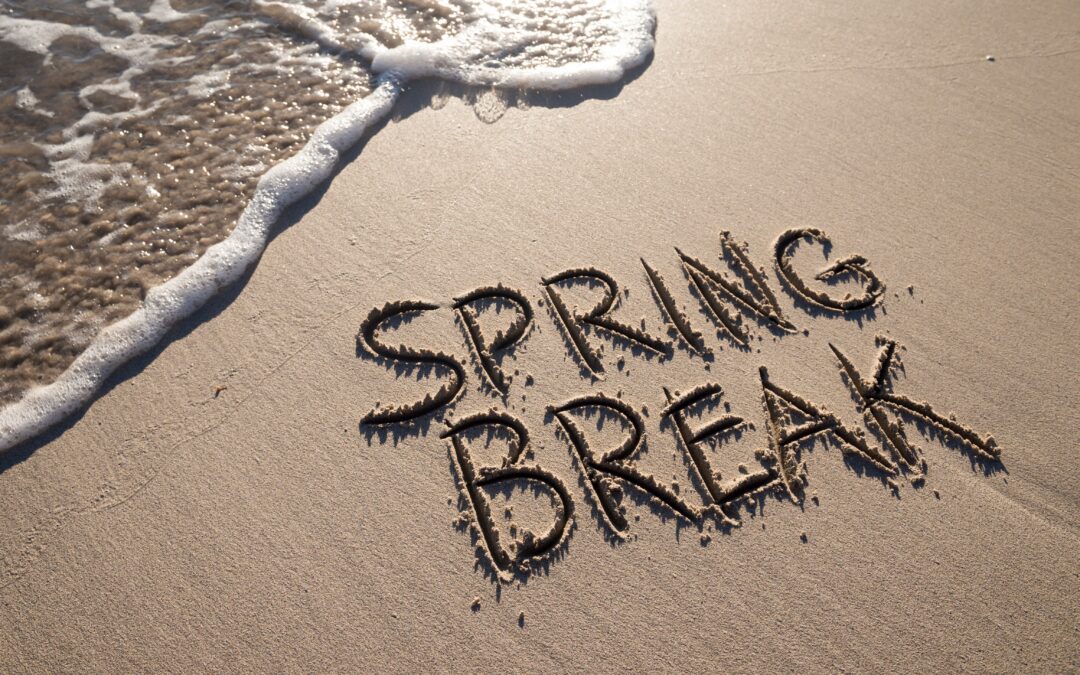Spring break is often associated with fun, adventure, and relaxation—a time for students and young adults to unwind and let loose after months of hard work. However, amidst the excitement of spring break festivities, it’s essential to recognize and address the potential risks and dangers that may accompany this annual tradition. In this blog post, we’ll delve into the realities of spring break, including the prevalence of addiction, binge drinking, and the sobering realities of sexual assault. By shedding light on these important topics, we aim to promote awareness and encourage safe and responsible behavior during this celebrated time of year.
The Culture of Spring Break:
Spring break has become synonymous with sun-soaked beaches, pool parties, and late-night revelry. For many, it’s a chance to escape the stresses of everyday life and indulge in carefree fun with friends. However, beneath the surface of this seemingly idyllic getaway lies a darker reality—one characterized by excessive drinking, risky behavior, and the potential for harm.
- Binge Drinking and Alcohol Abuse: Spring break often provides an environment conducive to excessive drinking and alcohol abuse. With access to cheap drinks, all-inclusive resorts, and party-centric destinations, many individuals engage in binge drinking, consuming large quantities of alcohol in a short period. This pattern of behavior can lead to impaired judgment, blackouts, and increased risk of accidents, injuries, and alcohol poisoning.
- Peer Pressure and Social Norms: The culture of spring break can perpetuate a sense of peer pressure and social expectation, where individuals feel compelled to participate in heavy drinking and risky activities to fit in or impress their peers. This pressure to “keep up” with others can contribute to a cycle of excessive drinking and reckless behavior, regardless of personal boundaries or limits.
- Risks of Sexual Assault: Amidst the festivities of spring break, the risk of sexual assault looms large. The combination of alcohol-fueled parties, crowded venues, and relaxed inhibitions can create an environment where predatory behavior thrives. Individuals, particularly young women, may find themselves vulnerable to unwanted advances, coercion, and assault—a sobering reality that underscores the importance of vigilance and awareness during this time.
The Intersection of Addiction, Binge Drinking, and Sexual Assault:
The connection between addiction, binge drinking, and sexual assault is complex and multifaceted, with each contributing to the perpetuation of harmful behaviors and negative outcomes.
- Addiction and Substance Abuse: For some, spring break serves as an opportunity to escape reality and numb the pain of underlying issues, such as stress, anxiety, or trauma, through substance abuse. Individuals struggling with addiction may use spring break as an excuse to engage in excessive drinking or drug use, further exacerbating their dependency and increasing the risk of adverse consequences.
- Binge Drinking and Impaired Judgment: Binge drinking, characterized by the consumption of large quantities of alcohol in a short period, can impair judgment, coordination, and decision-making abilities. In this state of intoxication, individuals may be more susceptible to risky behaviors, including unprotected sex, impaired driving, and involvement in potentially dangerous situations.
- Vulnerability to Sexual Assault: The combination of alcohol consumption and impaired judgment increases individuals’ vulnerability to sexual assault and exploitation. Perpetrators may target individuals who are intoxicated or incapacitated, taking advantage of their compromised state to commit acts of assault or abuse. The blurred lines of consent and the inability to effectively communicate or defend oneself further exacerbate the risk of victimization.
Promoting Awareness and Safety During Spring Break:
While the realities of spring break may seem daunting, there are steps individuals can take to prioritize their safety and well-being during this time of celebration.
- Set Boundaries and Limits: Establish clear boundaries and limits for alcohol consumption and participation in risky activities. Know your limits and stick to them, even in the face of peer pressure or social expectations.
- Stay Connected and Look Out for Each Other: Travel with a trusted group of friends and stay connected throughout your spring break experience. Look out for each other, and intervene if you notice signs of intoxication, distress, or vulnerability in your peers.
- Trust Your Instincts and Seek Help if Needed: Trust your instincts and prioritize your safety above all else. If you feel uncomfortable or unsafe in any situation, remove yourself from the environment and seek help from trusted individuals, authorities, or support services.
- Practice Safe Drinking Habits: If you choose to drink alcohol, do so responsibly and in moderation. Pace yourself, alternate between alcoholic and non-alcoholic beverages, and avoid mixing different types of alcohol. Stay hydrated and be mindful of your alcohol tolerance and limitations.
- Seek Support and Resources: If you or someone you know has been affected by addiction, binge drinking, or sexual assault, don’t hesitate to seek support and resources. Reach out to trusted friends, family members, or professionals for assistance, and explore available support services, hotlines, and crisis intervention resources for guidance and support.
Conclusion:
Spring break is a time of celebration and relaxation, but it’s essential to approach it with awareness, responsibility, and mindfulness of the potential risks and dangers that may arise. By promoting awareness of addiction, binge drinking, and the realities of sexual assault, we can empower individuals to make safe and informed choices during this celebrated time of year. Together, let’s foster a culture of awareness, respect, and safety, ensuring that spring break remains a time of fun, joy, and positive memories for all.

